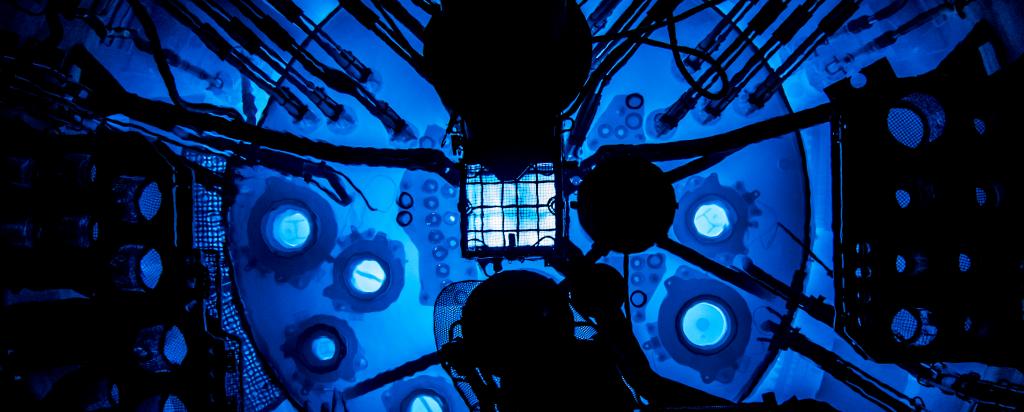
Profile
Matthew Sale joined the former Bragg Institute in 2010 to work on the computational analysis of Li-ion battery materials. At this time, he wrote the 3DBVSMAPPER program which is capable of analysing the ionic conduction properties of thousands of metal-oxide framework materials and other materials.
Matthew has completed his PhD on the computational analysis of functional materials with a focus on density functional theory within VASP. He has performed calculations of the magnetic structure of bulk crystalline solid oxides as well as calculation of ionic conductivity from mean squared displacement/ molecular dynamics and the climbing nudged elastic band method.
Qualifications & Achievements
- Bachelor of Physics, University of Wollongong, 2005-2009
- Year-In-Industry Studentship, ANSTO, 2010
- Masters of Physics, University of Wollongong, 2011-2014
Selected publications
3DBVSMAPPER Program
3DBVSMAPPER is a program that generates bond-valence sum maps and bond-valence energy landscapes to identify ion-conduction pathways for a given test ion species. It uses the application programming interface provided with Materials Studio and the Perl language. The program currently requires Materials Studio from Accelrys; please email us if this is not available to you. Also, please send any comments, problems or bugs about the program to the following email addresses. Improvements to the program are currently in progress and a new version is expected soon.
"3DBVSMAPPER: a program for automatically generating bond-valence sum landscapes", M. Sale, M. Avdeev, Journal of Applied Crystallography 45 (5) (2012) 1054-1056
Contacts: [email protected], [email protected]
New features:
- Points mode - calculate BVS and BVEL values at atomic positions as well as Global Instability Index (GII) and total structure energy
- Split +/- field mode - calculates separate attractive and repulsive fields
Changelog:
- Updated constants from Stefan Adams for BVEL method. This may have an effect on BVEL calculations containing elements O, Li and B and several other anions
- Updated BVS constants from iucr website http://www.iucr.org/resources/data/datasets/bond-valence-parameters
- Removal of +100 value to all VESTA *.grd output
- Overhaul of many subroutines
Known issues:
- B-value mixing currently not implemented
AtomisticFileConversion-PERL5
Link to GITHUB page for AtomisticFileConversion-PERL5
Various utilities have been written in PERL to convert files between Materials Studio and VASP as well as other file formats.
